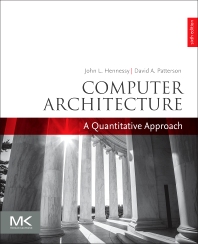Books in Computer systems organization general
Books in Computer systems organization general

High Performance Computing
Modern Systems and Practices- 2nd Edition
- Thomas Sterling + 2 more
- English

Computers as Components
Principles of Embedded Computing System Design- 5th Edition
- Marilyn Wolf
- English

Computer Organization and Design RISC-V Edition
The Hardware Software Interface- 2nd Edition
- David A. Patterson + 1 more
- English

Computer Organization and Design MIPS Edition
The Hardware/Software Interface- 6th Edition
- David A. Patterson + 1 more
- English

Advances in Delay-Tolerant Networks (DTNs)
Architecture and Enhanced Performance- 2nd Edition
- Joel J.P.C. Rodrigues
- English

Embedded System Interfacing
Design for the Internet-of-Things (IoT) and Cyber-Physical Systems (CPS)- 1st Edition
- Marilyn Wolf
- English

Hardware Security
A Hands-on Learning Approach- 1st Edition
- Swarup Bhunia + 1 more
- English

High Performance Computing
Modern Systems and Practices- 1st Edition
- Thomas Sterling + 2 more
- English

Computer Architecture
A Quantitative Approach- 6th Edition
- John L. Hennessy + 1 more
- English

Real-Time Programming 1992
- 1st Edition
- J.A. De La Puente + 1 more
- English